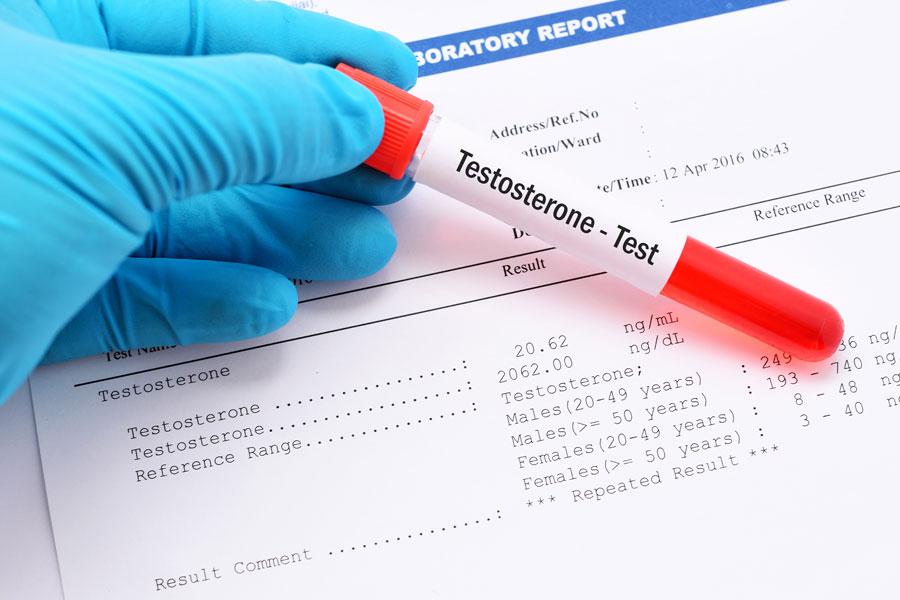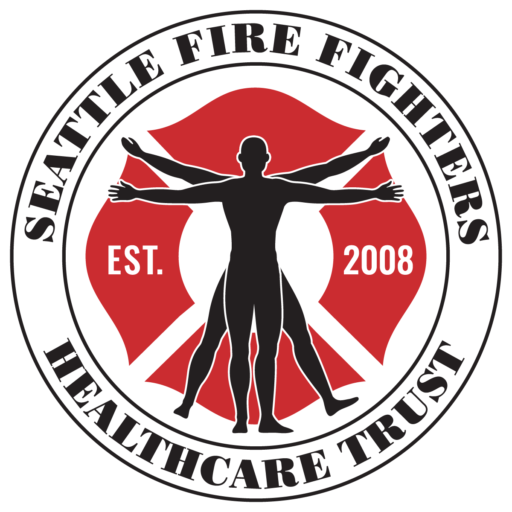
Low Testosterone in Male Fire Fighters
What the latest research says about hormones, performance, and occupational risk in the fire service
Testosterone is more than a buzzword—it’s a vital hormone that helps regulate muscle strength, bone health, mood, energy, memory, and sexual function. For fire fighters, who live and work in one of the most physically and psychologically demanding professions, testosterone levels can have an even greater impact on performance and long-term health.
Low testosterone (often called “Low T”) is more common in fire fighters than in the general population. In one large study, 11% of career fire fighters had testosterone levels below the healthy range, compared to about 4% in the general population. Young recruits can experience sharp declines in testosterone during just their first year on the job. Clearly, this isn’t just an issue of aging—it’s occupational.
Why Low T Matters for Fire Fighters
- Performance and Readiness
Testosterone helps regulate muscle mass, strength, and energy levels. Low levels can mean decreased endurance, slower recovery, and trouble maintaining peak physical condition—all of which affect safety in emergency response. - Heart and Overall Health
The same factors that lower testosterone—stress, disrupted sleep, poor diet, excess weight, and exposure to toxins—also increase the risk of cardiovascular disease. Because fire fighters already face elevated cardiovascular risks, low testosterone may be a warning sign that other serious conditions are developing. - Unique Occupational Risks of Treatment
Testosterone replacement therapy (TRT) can raise testosterone to normal levels, but for fire fighters, it carries extra risks. TRT often causes erythrocytosis, a rise in red blood cell counts that thickens the blood. For dehydrated, heat-stressed fire fighters, this increases the risk of clots, strokes, and heart attacks.
What the Science Says — Benefits and Risks of TRT
The TRAVERSE Trial (2023), the largest study of testosterone replacement therapy to date, followed over 5,200 men with cardiovascular risk factors for nearly two years. The findings were reassuring in some ways: there was no increased risk of heart attack, stroke, or death compared to placebo. Men receiving TRT also saw a 22.5% decrease in new-onset diabetes, along with improvements in sexual function, libido, and mood. However, the trial also found unexpectedly higher rates of bone fractures and a 61% discontinuation rate, indicating that side effects, inconvenience, and/or the lack of significant benefits remain important concerns.
Beyond the TRAVERSE trial, research indicates that TRT carries significant risks that fire fighters must carefully consider:
- TRT suppresses sperm production, making it unsuitable for men who want to father children.
- It can cause erythrocytosis—a thickening of the blood that increases the risk of clots, strokes, and heart attacks. For fire fighters working in hot, dehydrating conditions, this risk is particularly concerning.
- TRT can also lead to increased prostate size and higher PSA levels, sometimes resulting in invasive cancer screenings. While evidence does not show an overall increased risk of prostate cancer, TRT may exacerbate undiagnosed cancer.
- The risk of blood clots from TRT is highest during the first three months of treatment, especially in men with existing clotting disorders.
These risks don’t mean TRT should be dismissed entirely, but they emphasize the importance of careful evaluation, proper testing, and close medical supervision by an endocrinologist, urologist, or primary care provider following evidence-based guidelines. This balanced approach will help you make informed decisions that safeguard both your performance and long-term health.
Lifestyle First: The Safer, Smarter Path
Before considering TRT, you should know that the same habits that protect against heart disease also support healthy testosterone. Evidence shows:
- Weight loss: Losing just 5 pounds can raise testosterone by nearly 30 ng/dL.
- Exercise: Both strength and cardio training boost testosterone and cut erectile dysfunction risk by 50%.
- Diet: A Mediterranean-style diet improves testosterone levels and reduces long-term disease risks. Cutting back on alcohol consumption also decreases your risk of developing a testosterone deficiency.
- Sleep: Treating sleep apnea and getting at least 6 hours per night restores energy and hormone balance.
- Stress management: Chronic stress lowers testosterone; developing healthy coping strategies improves both hormone levels and resilience.
These interventions don’t just raise testosterone—they strengthen the whole system that keeps you healthy on and off duty.
The Dangers of “Optimization” and Unproven Supplements
Beyond medical TRT, many fire fighters are targeted by clinics, online ads, and “tactical athlete” marketing promising testosterone “optimization.” These often include unproven supplements, injections, or protocols that are not supported by science.
Why This Is a Problem:
- No Added Benefit Above Normal
Studies consistently show that men with normal testosterone levels gain no extra benefit from pushing their levels higher. Supranormal testosterone does not increase muscle strength, energy, or health for men with normal testosterone levels. - Increased Risks Without Rewards
Taking testosterone when levels are already normal exposes men to risks—thicker blood, blood pressure spikes, stroke risk, and suppressed natural testosterone production—without proven benefits. Suppressing natural production can be especially concerning; once natural production is shut down, it might never fully recover. - Supplement Industry Pitfalls
Over-the-counter “test boosters” are poorly regulated, often mislabeled, and sometimes contaminated with harmful or illegal substances. Even when “natural,” these supplements have not been shown to significantly increase testosterone levels in clinical trials. - Marketing Exploits the Culture of Fire Fighters
Fire fighters face constant pressure to stay fit, strong, and ready. Social media and celebrity doctors exploit these fears by selling “optimization” as a quick fix, downplaying risks, and distracting from the lifestyle changes that truly improve health and performance.
Low testosterone can affect fire fighters, but it’s not just about libido or energy—it’s a sign that underlying health problems could be present.
Recommendations for Fire Fighters
- Know the Warning Signs
Pay attention to reduced libido, erectile dysfunction, unusual fatigue, muscle loss, or unexplained mood changes. These may signal Low T, but can also be warning signs of other health conditions that require attention. - Get Tested the Right Way
Always test in the morning (7–9 AM), after fasting and a full night’s sleep. Use a CDC-certified lab and repeat testing at least twice before making decisions. Avoid clinics that base diagnoses on a single test or vague symptoms. - Prioritize Lifestyle First
Focus on sustainable weight management, regular exercise, quality sleep, and stress reduction. These steps raise testosterone naturally and reduce chronic disease risk—often resolving the problem without medication. - Be Careful with TRT
If lifestyle changes don’t resolve symptoms and testing confirms low levels, TRT may help. But it requires close monitoring: testosterone levels, PSA, blood counts, and cardiovascular health checks every 3–6 months. - Avoid “Optimization” Clinics and Supplements
Steer clear of providers who promise high testosterone at any cost, skip proper testing, or push expensive supplements. If your levels are normal, TRT and “boosters” are not optimization—they are risky experimentation. - See the Bigger Picture
Remember: Low T is often a marker of larger health issues, especially cardiovascular risk. Addressing the root causes will not only improve testosterone but also extend your health, career, and life.
The Bottom Line
While TRT has a role for some men, the risks are real, especially for those working in extreme heat and dehydration. Unproven supplements and “optimization” programs only add unnecessary danger without clear benefits.
The safest, most effective path is simple: eat well, move often, sleep deeply, and manage stress. These fundamentals improve testosterone naturally and protect against the diseases most likely to cut fire fighter careers short. If TRT is necessary, pursue it only under expert medical care with proper monitoring.
At Station 2 Clinic, we encourage you to see testosterone not as a shortcut to peak performance, but as a vital sign pointing toward overall health. Protecting that health means rejecting risky “optimization” promises and focusing on proven, sustainable strategies that keep you strong—for the fireground and for life.
Additional Information on This Topic:
- IAFF Testosterone Information Document (2020)
- Long Term Cardiovascular Safety of Testosterone Therapy: A Review of the TRAVERSE Study (2024), National Library of Medicine/PubMed
